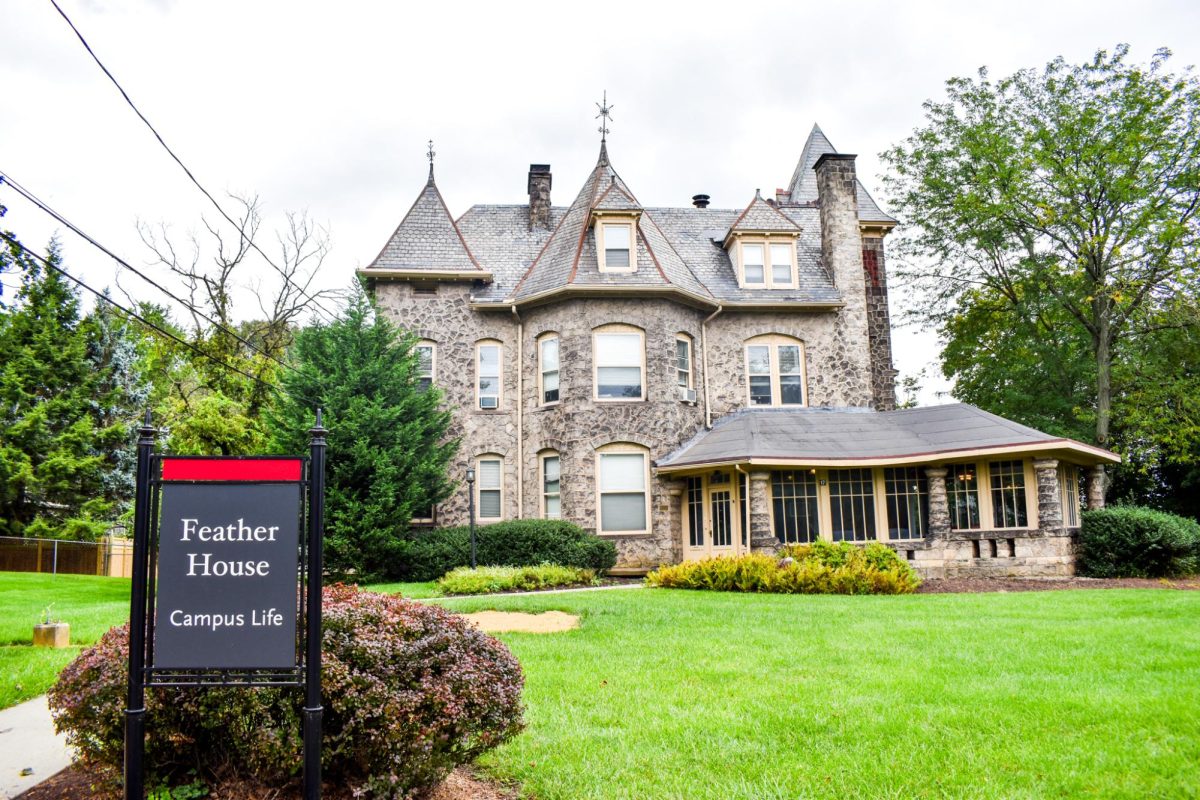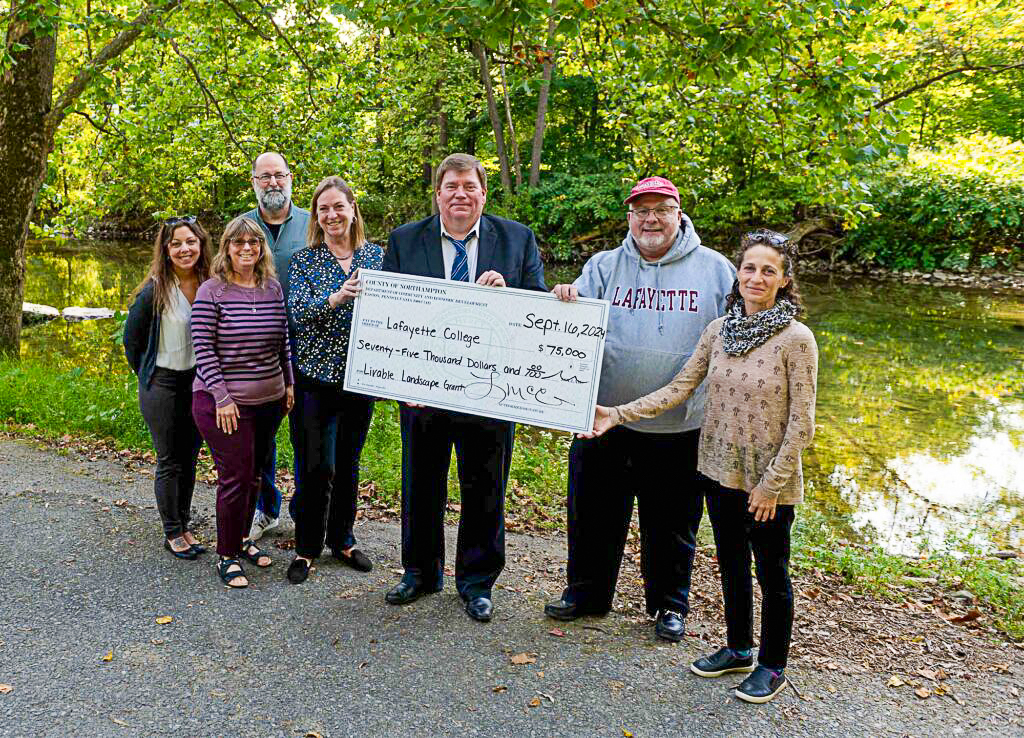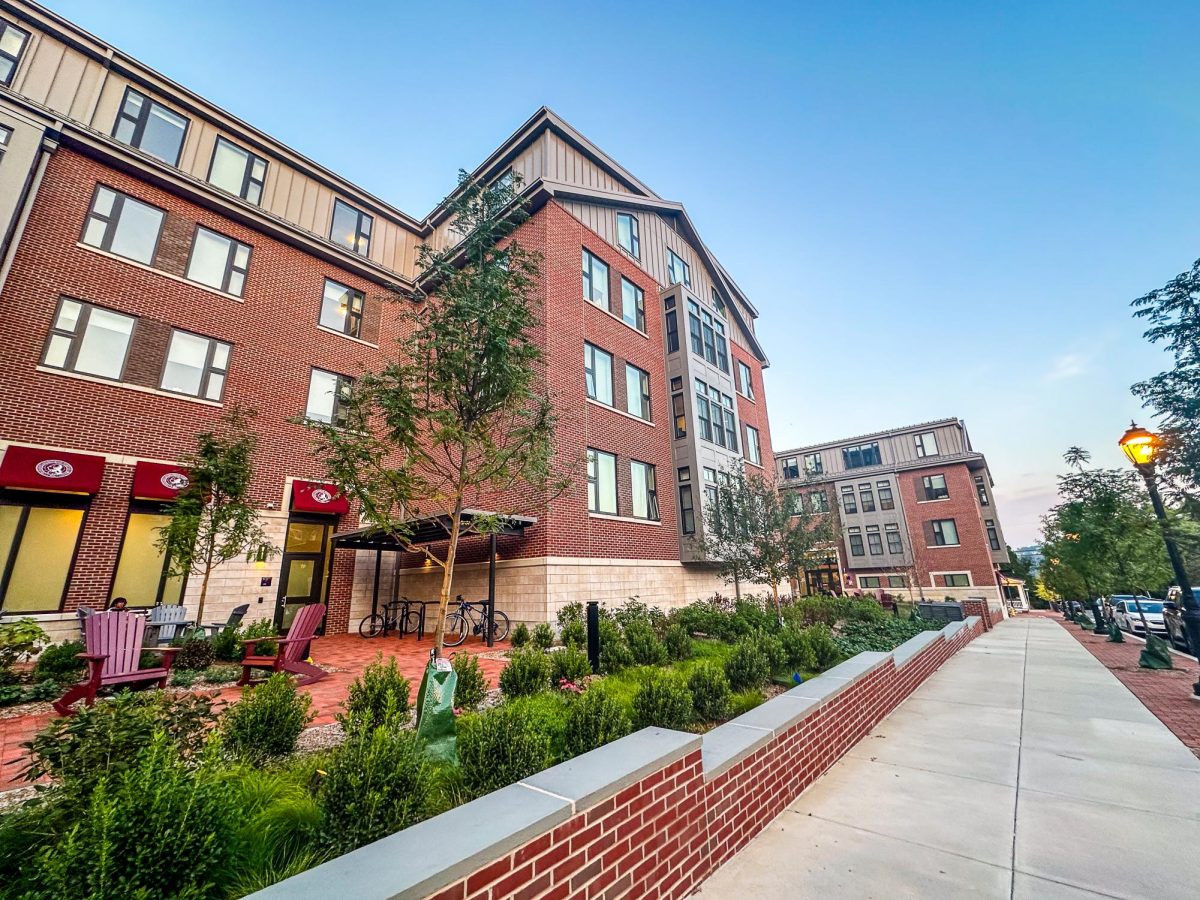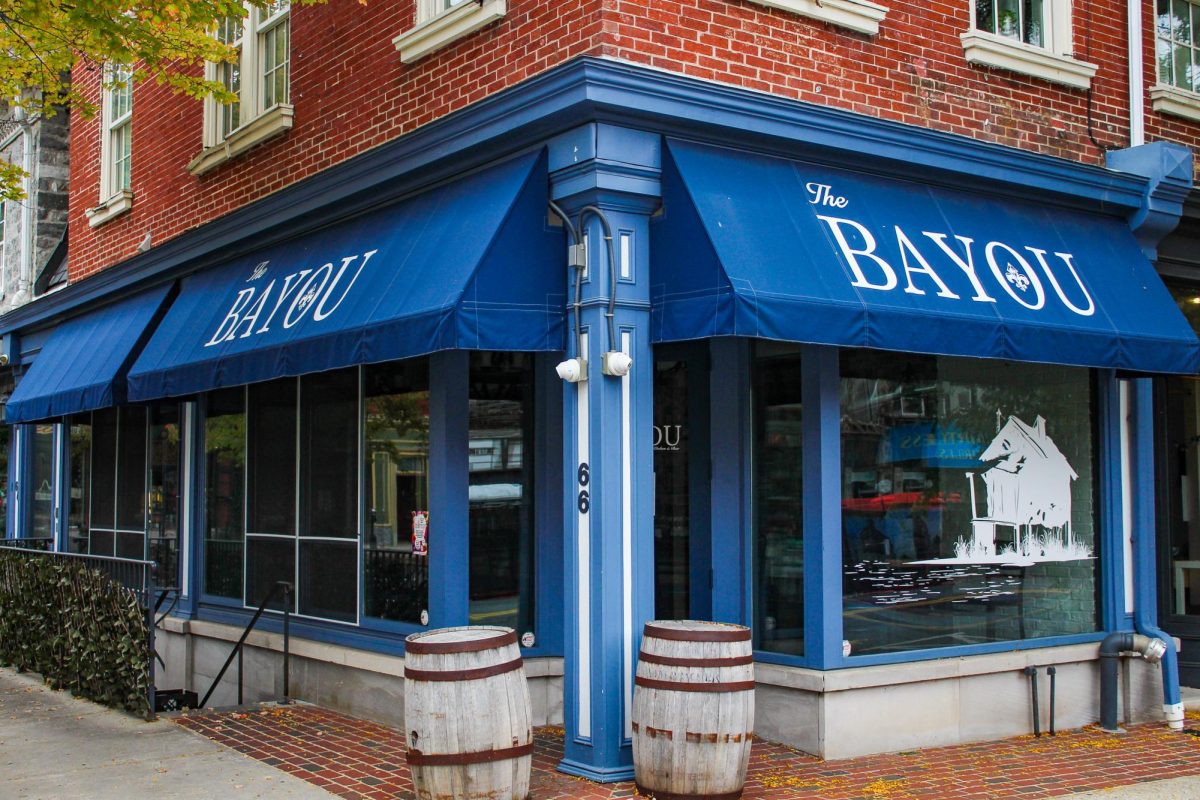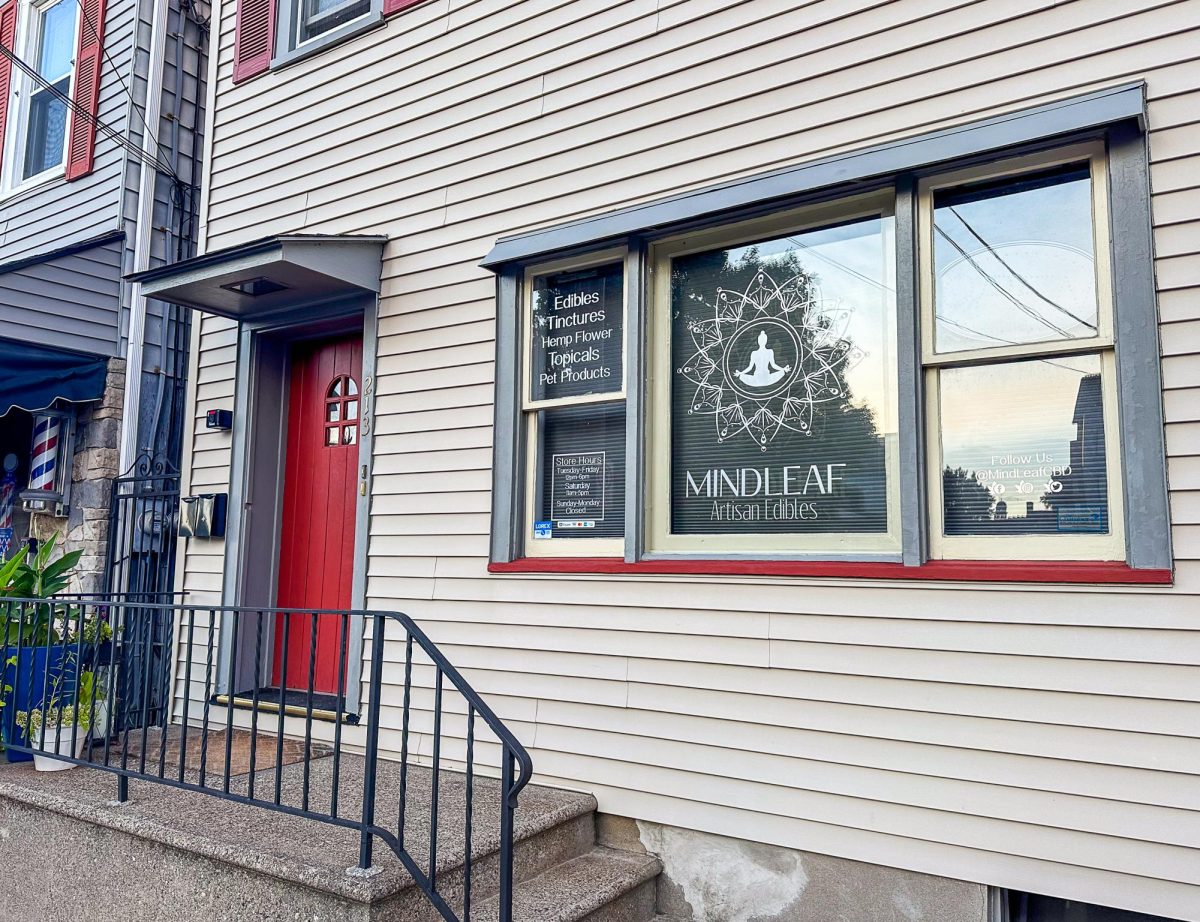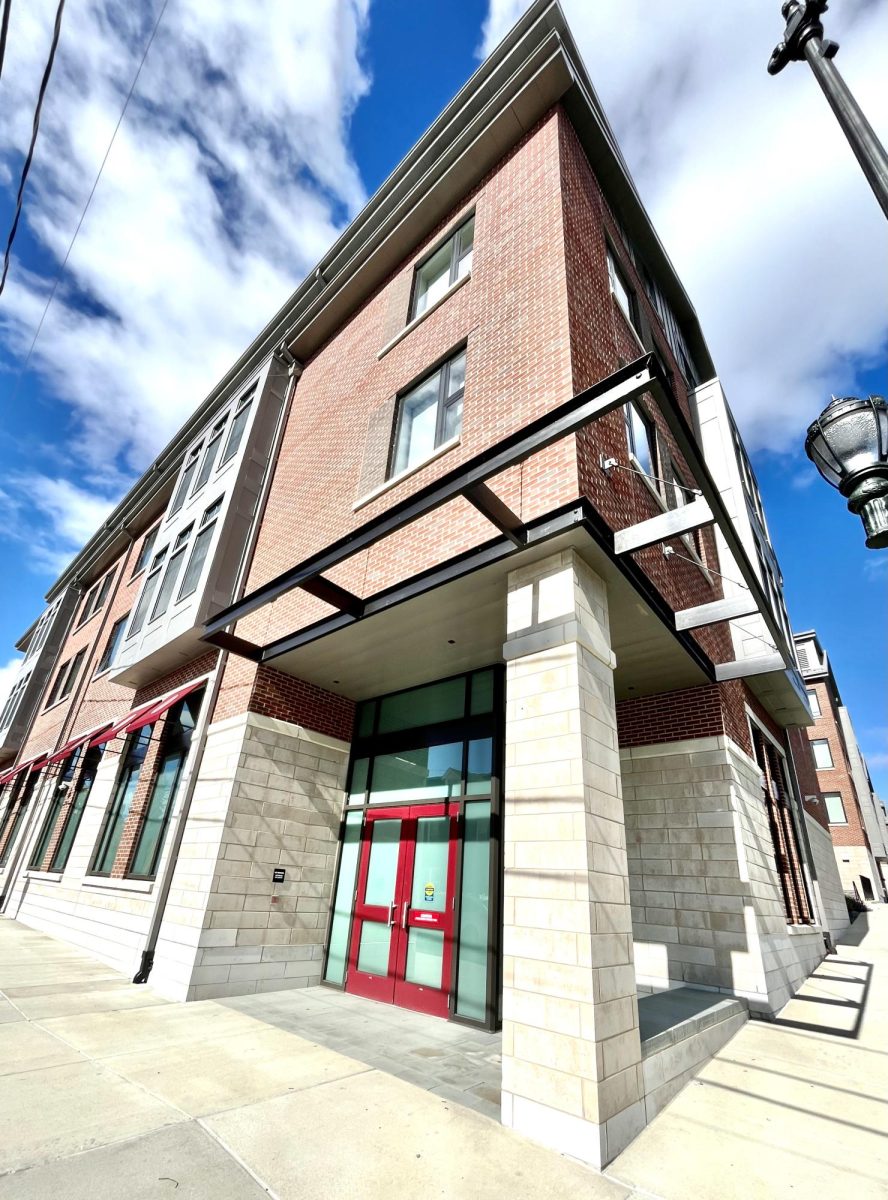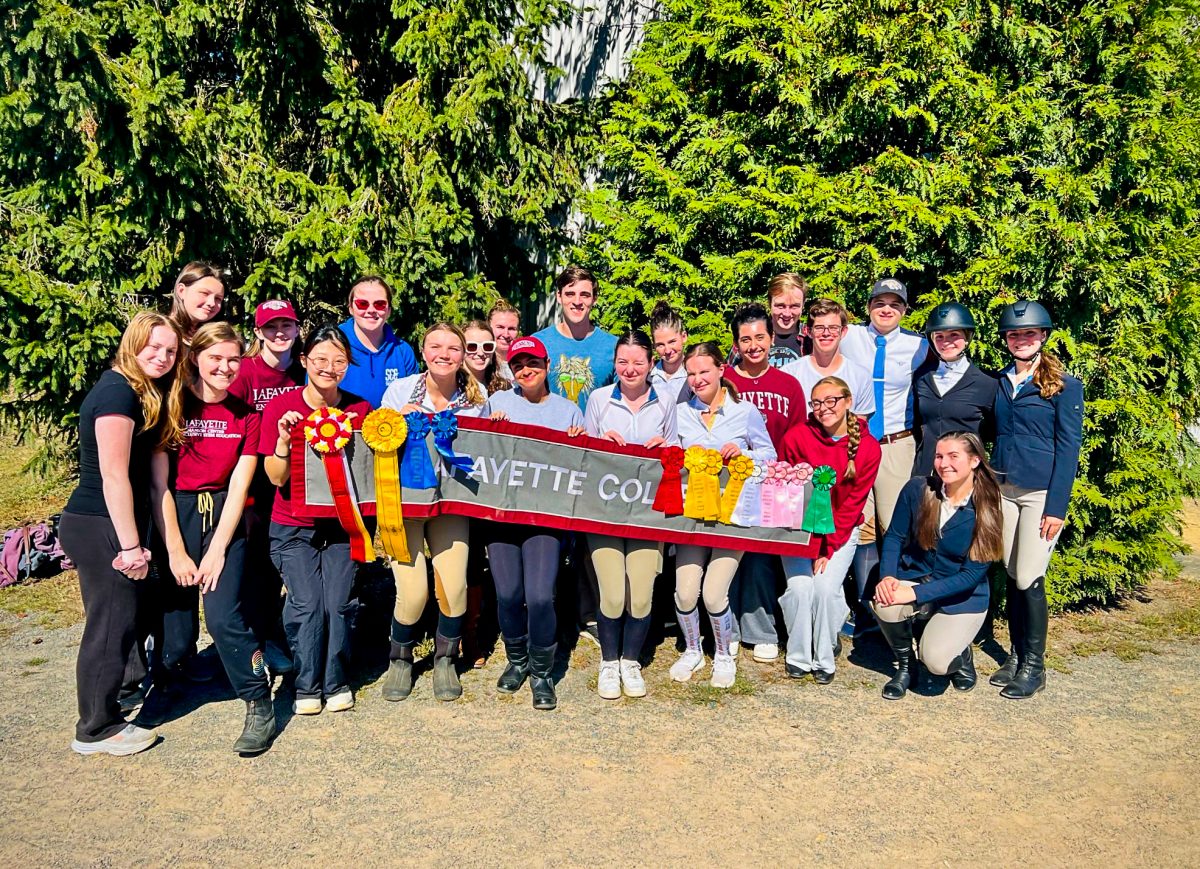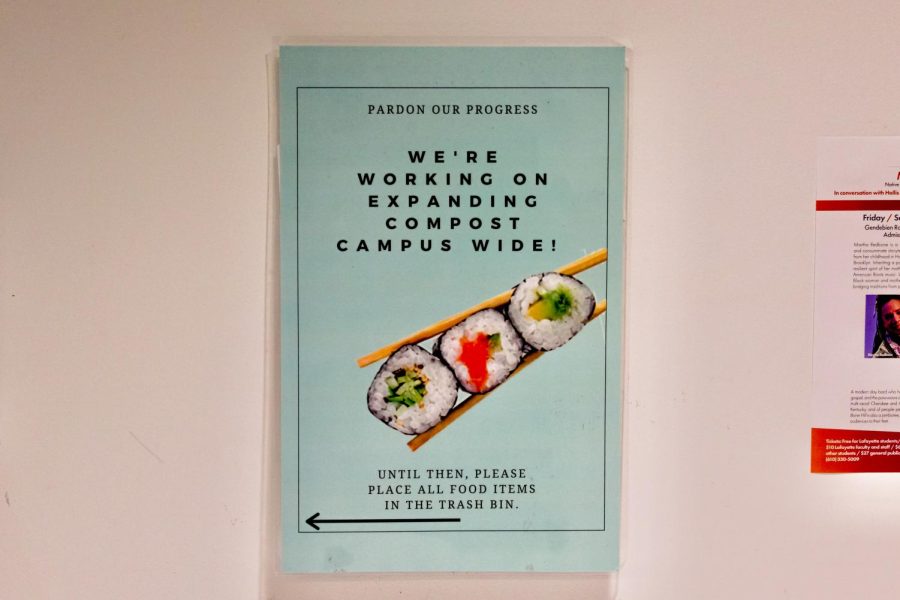For at least five years, signs claiming that “composting is coming soon” have covered bins throughout campus. Despite this, little progress has been made towards implementing a composting program that students can see, thanks in part to the COVID-19 pandemic and bureaucratic obstacles.
“I think they’ve been there since I was a freshman,” Lucie Lagodich ‘22, who was the director of the Sustainability Committee for Student Government for two years at Lafayette, said of the signs.
Lagodich said that at the time she graduated, there was a small program dedicated to this initiative at the Farinon and Marquis dining halls, but only with food scraps and uneaten food. Kaitlyn Hilley ’23, a representative on the Student Government Sustainability Committee, however, said that the program is nonexistent today.
“The last time that Lafayette College has composted anything was before Covid because we had a compost tumbler system, which was basically a pilot program,” Hilley said, adding that mechanical issues often hampered the effort.
“When COVID happened, it was just not instituted in a way that would be sustainable through something like that … It just kind of phased out and there was no one else to manage it,” Hilley said.
Contributing to the lack of composting are the costs associated with it, in addition to the bureaucracy that must be navigated to have funding approved.
“I’d say it stagnated a bit just because we kept hitting the wall of finance,” Lagodich said. “Everyone we’ve talked to has been like, ‘Hey, this is great, we should get this done. We’re just struggling to get it done.’”
Lagodich cited several financial hurdles, such as the cost of a garbage truck – perhaps eclipsing $100,000 – as well as the full-time personnel necessary to oversee the composting. Space is also an issue, according to Lagodich.
“We spoke to the mayor of Easton, [but] there’s nowhere within Easton city limits that is big enough or has an Easton compost unit big enough,” Lagodich said. Hilley and her committee are working on a number of solutions.
“One of the plans like one that I’m working on currently is bringing that compost to a Lafayette-run composting program,” Hilley said. “Or we would give this to a third party … that composts on your behalf. And that’s an additional fee and if we aren’t reaching the standards that they need – say that we have too much contamination of the compost from front-of-the-house waste – then that means that they’re not going to be taking our food waste.”
Front-of-the-house waste refers to that which students themselves dispose of, such as in compost bins; back-of-the-house is that handled solely by staff members. Hilley says that front-of-the-house composting is difficult to implement because of a lack of education surrounding proper composting.
“It’s hard to trust that students will be putting the correct things in the correct bins,” Hilley said. “It’s just people who are engaging in this kind of resource disposal often do it incorrectly. And that’s just a lack of education.”
Ensuring proper composting by students, according to Hilley, is a futile effort if composting does not occur back of the house first.
“We are definitely years away from getting towards [front-of-the-house composting] because before we can even do that, we need to start composting for the back of the house,” Hilley said.
While Lagodich hopes that grants could be the solution to the financial issues, Hilley said that the success of a composting program relies on the school instead of outside sources.
“Grants are something that we’ve looked into. They haven’t been something that’s been heavily pursued,” Hilley said. “But the school really needs to go out with big support financially and also bureaucratically, like having other administrators on board. So that’s where the initial push needs to come from.”
A 2020 analysis from a civil and environmental engineering senior capstone project estimated the annual cost of composting to be between $57,000 and $115,000 for the college, depending on whether labor and processing were outsourced.
Going forward, Hilley hopes that this issue will be one that the administration prioritizes, as she has seen a lot of student passion for the topic.
“Student interest is very high for the issue but the school is hesitant to take definitive action at this point,” she said.
“It can happen as soon as people pull the trigger,” Hilley said. “It’s not that we don’t have technology or resources. It’s just we need to find money … We need to just have someone say ‘yes.'”
Gilad Evans ’24 contributed reporting.
A previous version of this article cited composting costs from a Student Government Sustainability Committee analysis. The analysis was actually from a senior capstone project overseen by civil and environmental engineering professor Arthur Kney.



